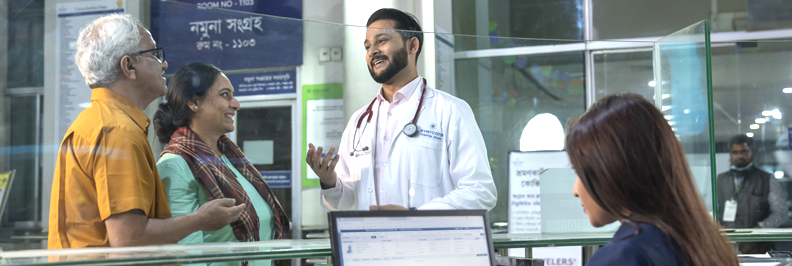Hepatobiliary, Pancreatic & Liver Transplant
Hepatobiliary Surgery
Hepatobiliary surgery is a specialized branch of surgery that focuses on the treatment of diseases affecting the liver, gallbladder, bile ducts, and pancreas. Given the complexity of these organs and their vital functions, hepatobiliary surgery requires advanced expertise and state-of-the-art technology to achieve successful outcomes. This article explores the common procedures, indications, recent advancements, and post-operative considerations associated with hepatobiliary surgery.
Common Hepatobiliary Procedures
- Cholecystectomy (Gallbladder Removal)
Cholecystectomy is the surgical removal of the gallbladder, most commonly performed for symptomatic gallstones, cholecystitis, or biliary dyskinesia. This procedure can be performed via open surgery or minimally invasive laparoscopic techniques. - Bile Duct Surgery
Surgical intervention in the bile ducts may be necessary for bile duct strictures, cholangiocarcinoma, or bile duct injuries. Procedures such as bile duct resection and reconstruction, or biliary bypass, help restore normal bile flow. - Pancreatic Surgery
Many hepatobiliary surgeons perform pancreatic surgeries, including the Whipple procedure (pancreaticoduodenectomy), distal pancreatectomy, or total pancreatectomy, mainly for pancreatic tumors or chronic pancreatitis. - Liver Resection (Hepatectomy)
Liver resection involves the surgical removal of a portion of the liver, typically for the treatment of liver tumors (both benign and malignant), metastatic cancer, or large cysts. Due to the liver’s ability to regenerate, patients can often tolerate partial liver removal with proper post-operative care. - Liver Transplantation
Liver transplantation is a life-saving procedure for patients with end-stage liver disease, cirrhosis, hepatocellular carcinoma, or acute liver failure. This procedure involves replacing a diseased liver with a healthy donor liver, either from a deceased or living donor.
Indications for Hepatobiliary Surgery
- Surgery of the liver and biliary tract for benign and malignant diseases
- Liver resection for malignancies and benign liver diseases, segmental and extended hepatectomy, removal of hydatid cyst
- Management of biliary tract strictures: post-inflammatory, post-surgical, malignancies
- Surgery for benign diseases and cancer of the pancreas
- Minimal access management of stone in the gall bladder and biliary tract and cancers of the gall bladder, liver and biliary duct
- Combining laparoscopic cholecystectomy, therapeutic ERCP and laparoscopic exploration of common bile duct
- Diagnostic and therapeutic endoscopic retrograde cholangio-pancreaticogram (ERCP) for benign and malignant biliary tract and pancreatic diseases
- Endoscopic and operative management of liver cirrhosis, portal hypertension, esophageal varices.
Recent Advances in Hepatobiliary Surgery
The field of hepatobiliary surgery has witnessed significant advancements that have improved patient outcomes and recovery times. Some key innovations include:
- Minimally Invasive Surgery (Laparoscopic and Robotic Surgery): These techniques allow for reduced post-operative pain, shorter hospital stays, and quicker recovery times.
- Enhanced Imaging and Navigation: Advanced imaging techniques, including intraoperative ultrasound, 3D imaging, and fluorescence-guided surgery, improve precision in tumor removal and bile duct reconstruction.
- Liver Regeneration Strategies: Innovations such as portal vein embolization (PVE) help stimulate liver hypertrophy before major liver resections, allowing for safer procedures.
- Liver Transplantation Techniques: Split liver transplantation and living donor liver transplantation have expanded the pool of available organs and improved survival rates.
Post-Operative Considerations and Recovery
Recovery from hepatobiliary surgery varies based on the complexity of the procedure. Some key post-operative considerations include:
- Monitoring for Complications: Common complications include bile leaks, infection, bleeding, and liver failure, which require careful monitoring.
- Nutritional Support: Proper dietary adjustments and nutritional support are critical, especially in liver transplant patients or those recovering from major resections.
- Liver Function Monitoring: Regular liver function tests (LFTs) and imaging studies help assess recovery and detect any signs of recurrence or complications.
- Lifestyle Modifications: Patients are often advised to avoid alcohol, maintain a healthy diet, and manage underlying conditions such as hepatitis or fatty liver disease to promote long-term liver health.
List of Doctors
We can help you choose top specialists from our pool of expert doctors, physicians and surgeons.
IMPORTANT POINTS ABOUT TESTS/PROCEDURES/SURGERIES, YOUR REPORTS & BILLING ENQUIRIES
- Tests/Investigations:
- To schedule a test/investigation, please call the relevant OPD front desks.
- Your lab investigation samples are to be deposited in the Sample Collection Room located in the hospital’s atrium, which is open on working days (Saturday-Thursday) from 7.00 am to 10:00 pm, and on Fridays and holidays from 7.00 am to 6.00 pm.
- Your investigation reports can be collected from Report Delivery Room by showing the receipt of payment. The hospital shall not be responsible for reports not collected within 30 days after the tests were done. Report Delivery Room is also located in the hospital’s atrium, and is open on working days (Saturday-Thursday) from 8.00 am to 8.30 pm, and on Fridays and holidays from 9.00 am to 5.00 pm.
- You will not be able to collect your investigation reports without your receipt of payment. If you have lost your receipt, you may collect a duplicate copy from our Billing Executives (Corporate Desk, Atrium – level 1).
- You can request duplicate copy of your investigation reports from the Report Delivery Room, inclusive of BDT 100 additional charge.
- Procedures & Surgeries:
- If you are interested in undergoing a procedure or surgery, please see our relevant Consultant first.
- To search for a Consultant, go to Find a Consultant page and for appointments, go to Make an Appointment
- In-patient Reports
- A Discharge Summary is provided to a patient upon his/her discharge from the hospital. A discharge summary is a summary of the events during hospitalization of the patient. It outlines the patient’s chief complaint, the diagnostic findings, the therapy administered and the patient’s response to it, and recommendations on discharge.
- To request for detailed in-patient medical reports or to make an insurance claim, refer to our Medical Report
- For queries on charges, contact our Billing Department (Corporate Desk, Atrium – level 1) or call/e-mail our Billing Executives:
| Mr. Taslimur Rahman: AGM – Financial Operation Phone : +88-02-8431661-5; Ext-1353 (From 9 am to 5 pm –Except Holidays) E-mail: taslimur.rahman@evercarebd.com |


 Md. Zulfiqur Rahman Khan.jpg)
